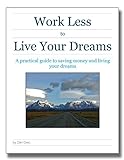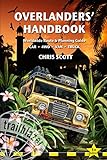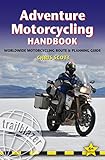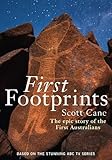Difference between revisions of "Australia"
(Created page with "<!-- Do not alter the following line. Include it as is. --> {{metadata_country}} Category:Country {{pricecontrol_country}} =At the border= Correct as of: n/a ==Required Pap...") |
(→Toll roads) |
||
| Line 60: | Line 60: | ||
===Toll roads=== | ===Toll roads=== | ||
| − | In cities, toll roads are unfortunately quite common and very expensive - to get over the Sydney Harbour Bridge is around <price cost="3.60" currency="AUD">. In general it is quite possible to avoid tolls in most cases, but expect your journey to take up to twice as long depending on traffic. | + | In cities, toll roads are unfortunately quite common and very expensive - to get over the Sydney Harbour Bridge is around <price cost="3.60" currency="AUD"/>. In general it is quite possible to avoid tolls in most cases, but expect your journey to take up to twice as long depending on traffic. |
In Australia, generally "Motorways" have tolls and "Freeways" are free. | In Australia, generally "Motorways" have tolls and "Freeways" are free. | ||
Revision as of 05:41, 4 December 2011
Currency to display:
Contents
At the border
Correct as of: n/a
Required Paperwork
tbc
Process at border
tbc
Cost of entry
tbc
Permitted length of stay
tbc
Extension of stay
tbc
Storing a vehicle and temporarily leaving the country
There are a number of self-storage companies that you can hire a garage from to store a vehicle. Look at link Kennards Self Storage and similar companies.
Exiting with a vehicle
Describe the paperwork requirements and process at the border to exit.
Overland Essentials
Vehicle Insurance
Insurance requirements
Yes or No if insurance is mandatory, and what kind is acceptable.
Cost of insurance
State the price of insurance and a time period.
Where to purchase insurance
Describe where insurance can be purchased.
Driving license
State the kind of driving licenses required. i.e. International Driving Permit.
Driving side of road
Australians drive on the left side of the road, the same as in Britain. (also state if a vehicle with a steering wheel on the opposite side can be legally driven)
Mandatory items in vehicle
State any mandatory items that must be carried in the vehicle. (i.e. safety triangle, first aid kit, fire extinguisher, etc.)
Roads
General Road quality
In the cities, the roads are generally reasonably wide as most Australians own cars as their primary form of transport. One way streets certainly exist but aren't as commmon as they are in denser cities like Hong Kong. Road quality within the cities (particularly in the suburbs) can be variable - Sydney and Melbourne in particular are some of the largest cities by area in the world and funding to fix pot holes is stretched thin.
Between the cities, the freeway system that links the big cities on the east coast (Melbourne to Sydney for example) is generally very good. Between smaller towns, there are generally paved two-lane highways that are decent. As you get more remote though, expect to deal with dirt roads - the outback of Australia is extremely large and not densely populated, and as such a large proportion of Australia's road network is dirt or gravel.
Road signs
Briefly describe the overall quality & existence of road signs for directions and hazards. In the cities, road sign quality is pretty good - one thing to watch out for is speed limit signs though. The speed limit changes extremely frequently and speed cameras are common.
Quality of signposting decreases as you travel to more remote regions - on the major highway/freeway networks it's generally very good with signposts frequently educating you as to what's ahead, how far to go, whether there's petrol etc. On more remote roads you'll probably find town names and not much else.
Toll roads
In cities, toll roads are unfortunately quite common and very expensive - to get over the Sydney Harbour Bridge is around $3.60 AUD. In general it is quite possible to avoid tolls in most cases, but expect your journey to take up to twice as long depending on traffic.
In Australia, generally "Motorways" have tolls and "Freeways" are free.
When using toll roads, something to consider is that although there are still cash-based booths here and there, most tollways rely on RFID-based toll collection mechanisms, where you register for a tag, put it on your car and it's detected when you drive through the booth, deducting your account. In NSW, motorcycles are generally exempt from having to carry around the tag (as there's no practical place to really put it) so the numberplate of the bike is scanned as they drive thruogh.
Outside of the cities, travel is generally free. However, expect to see the occasional car-ferry that charges per trip.
Bribery
Australia is one of the least corrupt countries in the world - joint 8th with Switzerland according to Transparency International. Bribery isn't part of the culture and it would be very unusual to be extorted. Offering bribes for something simple like a speeding ticket is extremely inadvisable.
Checkpoints
Extremely uncommon.
Traveling with pets
List the entry requirements and anything else required to travel with a pet.
Gasoline Petrol Diesel
Last updated: 2011/12/3
Price
Currency and unit to display:
Compared to the US, fuel in Australia (referred to as 'petrol' rather than 'gas', although people will still understand you) is fairly expensive. An average petrol station in a city will generally offer E10 91 or 91, 95, 98, Diesel and LPG. Out on the country, expect to see less high-octane fuels and more 91 than E10 91.
E10 was introduced a few years ago - in essence it's a blend of 10% ethanol (which can be refined from Australian-grown sugar cane and is supposed to burn cleaner) with 90% normal 91 octane fuel. Most Australians use this and most modern cars will run with it - be careful with older engines, as ethanol tends to dissolve any rubber it touches. Also keep in mind that E10 tends not to last quite as long as normal 91 octane fuel. Unfortunately because it's taken over, it's very hard to find 91 octane fuel without ethanol - generally it's quite common outside the cities, but inside it can only be found at the occasional 7-11 station.
95 and 98 octane fuels are generally quite a bit more expensive and often have other agents to clean your engine and so forth. If you have an older engine that can't run E10 this is often your only choice.
LPG (Liquid Petroleum Gas) is reasonably common in Australia due to its gas reserves. A large number of Australian cars (particuarly taxis) have been converted to run on LPG, which is far cheaper than petrol and offers nearly the same performance. However, if your vehicle hasn't been converted, stay away.
| Gasoline Grade | Price |
|---|---|
| Unleaded E10 (91) | $1.38 AUD per Liter |
| Unleaded (91) | $1.41 AUD per Liter |
| Premium (95) | $0.00 USD per Gallon (US) |
| Ultra (98) | $0.00 USD per Gallon (US) |
| Diesel | $0.00 USD per Gallon (US) |
Gasoline Availability / Frequency
Petrol shortages are extremely rare in the cities, and petrol stations are extremely common. In remote Australia, you'll generally find that there are enough stations to keep you going as long as your vehicle has a reasonable range, but carrying extra fuel in a jerry can or similar is advised.
Gasoline Quality
Gasoline quality is quite good.
External information about gasoline
Link to external websites with price & quality information, if available.
Safety and Security Considerations
Driving at night
Driving at night is generally safe in the cities and outside them. Be careful to watch for native wildlife though, particularly Kangaroos. As you travel around you'll see utes (pickups) and buses adorned with massive, Road-Warrior-esque bull bars - these are installed mainly with Kangaroos in mind. Kangaroos are very fast, very hard to predict and very solid - hitting one at ~100kmh can disable a car or kill a motorcyclist. There'll usually be signs on main roads where Kangaroos are common. Kangaroos are most active at sunrise and sunset - be most vigilant around these times.
Vehicle parking
Vehicles can be parked on the street, although make sure you check that there's no 'No Parking', 'No Stopping' etc signs. Whether they're safe depends on what kind of neighbourhood they're parked in. An odd rule of thumb is that in most Australian cities, the more affluent neighbourhoods tend to be towards the east. Parking in towns depends on the town - there are many nice towns where your vehicle will be untouched, and others where bored kids might steal everything that isn't welded on. Be aware of your surroundings.
For parking off street, in the cities there are a lot of paid car parks that are very expensive.
Special driving considerations
A List of special things to be careful of (i.e. Unsigned speed bumps, abnormal road rules, people or animals on the road, etc.).
List any roads that are not recommended to drive for safety or other security reasons.
Security advisories and information
- Country Specific Information - U.S. Department of State
- Travel Reports and Warnings - Foreign Affairs and International Trade Canada
- Travel advice by country - Foreign and Commonwealth office (U.K.)
- Travel Advice for Australia - Australian Department of Foreign Affairs and Trade
Camping
Describe if organized "pay" camping is common. List the facilities commonly found at these campsites.
List the approximate average price range of camping in organized campgrounds.
Also discuss the possibility of "wild" or "roadside" camping. How common is it? Is it considered safe, or a bad idea.
Camping guide books
List and link to books specifically for camping.
Drinking water
Describe if the regular tap water is safe to drink. If not, describe where safe water can be purchased and the approximate average price range.
Paper maps
Description of the best paper maps and where to purchase them.
GPS
Review different GPS companies, quality and coverage (Tomtom, Garmin, OSM, Tracks4Africa). (with links to each).
Directions and GPS co-ordinates for camping, propane, gas, repairs, etc.
Link to sites that have a list of GPS co-ordinates (or directions) for camping locations (including "wild" campsites), propane filling, gas stations, repair shops, places of interest, etc.
Overland Travel Interest
Special Overland interests
List any special items / places that are popular with Overlanders
Guide Books
Vehicle Maintenance
Dealers
4x4s / Trucks
- Toyota Global Dealer Locator
- Land Rover International Dealer Locator
- Mercedes Benz International (select country on bottom right)
- Jeep International site locator
Motorbikes
Local Garages
Add known good mechanics here.
Buying and selling vehicles
Buying a vehicle as a foreigner
Describe how a foreigner can buy a vehicle. List any difficulties or limitations on where the vehicle can be driven.
Selling a foreign-plated vehicle
Describe how a foreigner can sell a foreign-plated vehicle, or list not possible.'
References
Links to the source of any information - blogs or discussion forums, etc.
Helpful External links
Add any helpful external links here.




